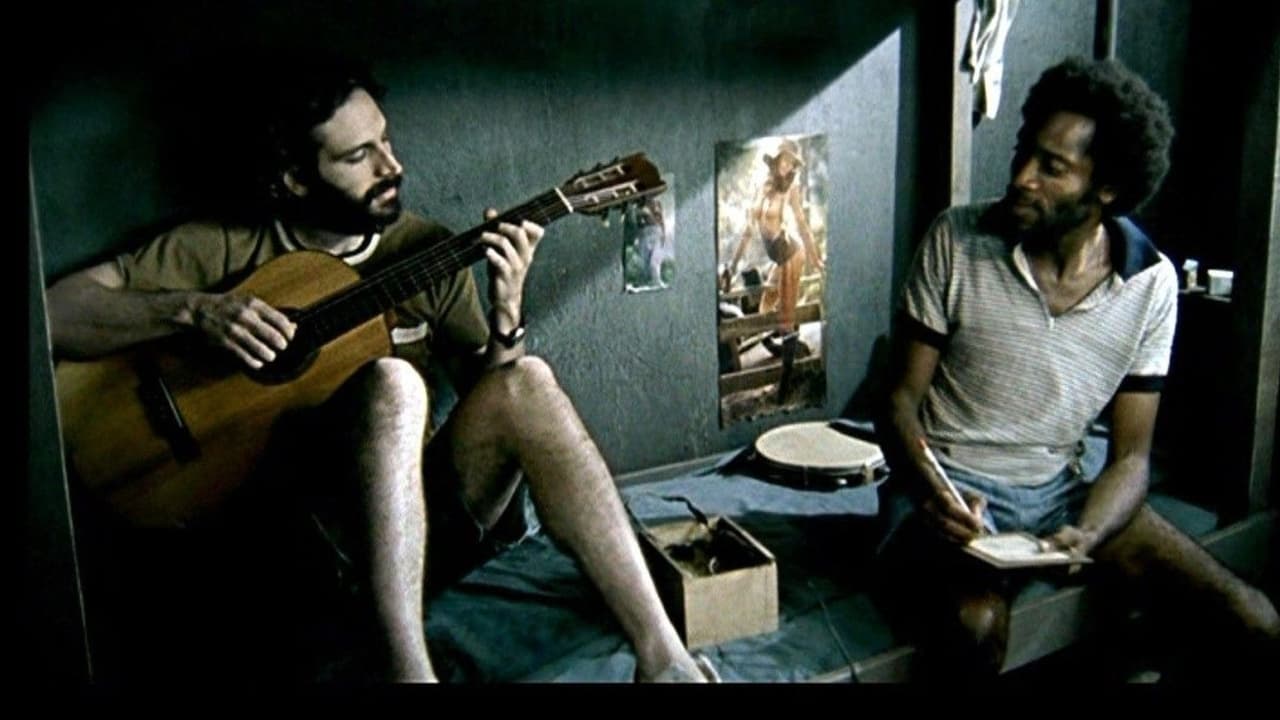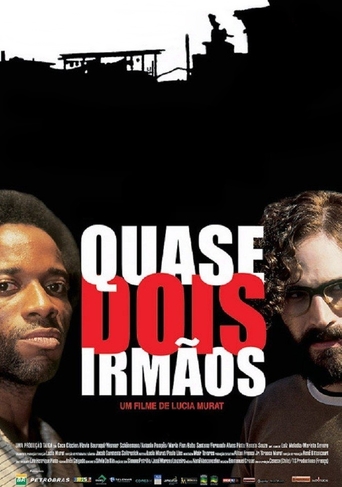

This is of course in my humble opinion. After seeing City of God, I thought I understood Brazil pretty well. Not so, it seems. Whereas City of God focuses on the life in the favelas and the rise of violence in the streets, explaining in a humoristic manner why criminals are getting younger, Almost Brothers does an excellent job at describing how the criminals organize themselves so well, even with the masterminds in the jail. It all started during Brazil's dictatorship, when left-leaning intellectuals have been thrown in jails together with common criminals. The film has its symbolism, indicating how the Brazilians - no matter how idealistic and tolerant in theory - have reached the conclusion that rich and poor shall be separated. The extra features on the City of God DVD actually explain how the upper-middle class of Brazil prefer to build houses for the poor in suburbs far away from their neighborhoods, hoping they will not visit. "The only government agencies entering the favelas are the police" says one of the interviewees, raising the question if there is actually something that can be done about Brazil. City of God ends in a rather optimistic tone, while Almost Brothers reminds me of the tragedy in Steven Soderbergh's Traffic. The movie alludes to the never-ending cycle of violence and it offers absolutely no resolution, other than a weak comment from the grandmother watching her granddaughter recovering on the hospital bed: "Everything is going to be OK." Is it though? The movie seems to only show a divided society. The solution? To be determined.
... View MoreI watched this movie by my father's recommendation, but I am not disappointed at all. First of all,this film show us in a great way, how the ''Comando Vermelho'', a big criminal gang from Rio de Janeiro, was formed and how the guys learned how to organize their criminals and teams. I think this movie will mark mainly brazillians, special the ones from Rio de Janeiro like myself, but this is not a reason why foreigners should not watch,specially if they liked ''Cidade de Deus''. Caco Ciocler already is considered a great actor,as well as Marieta Severo and Antônio Pompêo,but this movie have show me a new excellent actor: Flavio Bauraqui(who plays Jorginho in the 70's)
... View More...and I found it great because it examines the process that lead to the huge social crisis we are currently living in Brazil without resorting to maniqueism. It actually blames everyone that is to be blamed. Mrs Murat knows what she is talking about when presents us the reality of the political prisoners in Brazil's 60s and 70s, she's actually been there. However, she never falls into the endless mourning of the poor intellectuals that were forced to live among ordinary prisoners. She actually presents a question and leave it for the watchers to make their own conclusions. The only weak leak is left to the nowadays romance between Maria Flor's character and her slum chief boyfriend. The acting is weak and her character is shallow - nobody knows what are her feelings, why is she there, how much she loves him (and maybe that's because there was too many things to be told at the same time).
... View MoreQUASE DOIS IRMÃOS (the title translates as something like ALMOST LIKE TWO BROTHERS) is a brutal examination of Brazilian society, divided between black and white people, between politicians and drug barons, men and women, mothers and sons, us and them. There are times when these worlds live together, but they are bound to collide, crash and burn. The movie follows the friendship between a black man from the slums (Jorge) and a communist (Miguel). In their childhood, they play games and listen to the samba; in their youth, they are arrested (Miguel for political reasons, Jorge for being a thief); later, Jorge has become a drug baron and Miguel is a politician who forgot his dreams of changing the world. The centerpiece of the movie is the time they spent together in jail. Miguel learns that the "people" for whom he fights is not the way he idealizes them, and Jorge learns how to take the "political view" into the crime life, thus generating the organized crime. The director Lucia Murat, no strange to political persecutions herself(she was arrested and tortured by the dictatorship in Brazil)conducts this epic story with intimate care and great storytelling. The cast is top-notch, with great Brazilian actors giving the performances of their lives (Caco Ciocler and Flavio Bauraqui are standouts). A masterpiece from Brazil who deserves to be discovered.
... View More